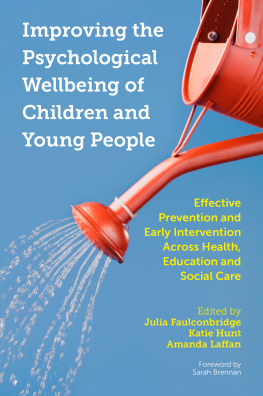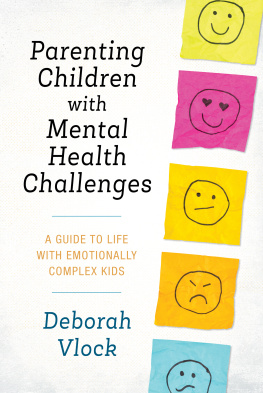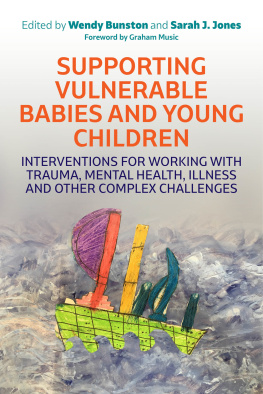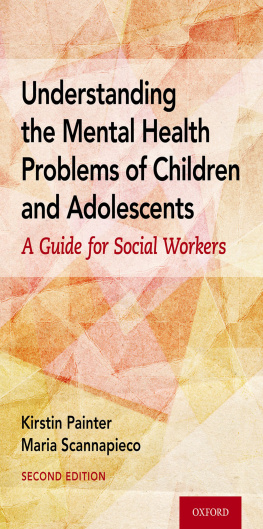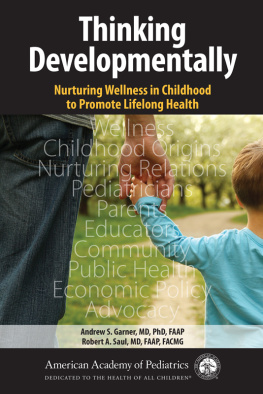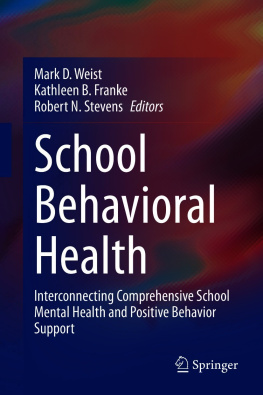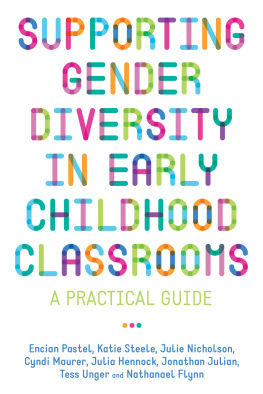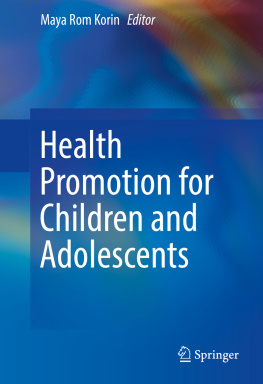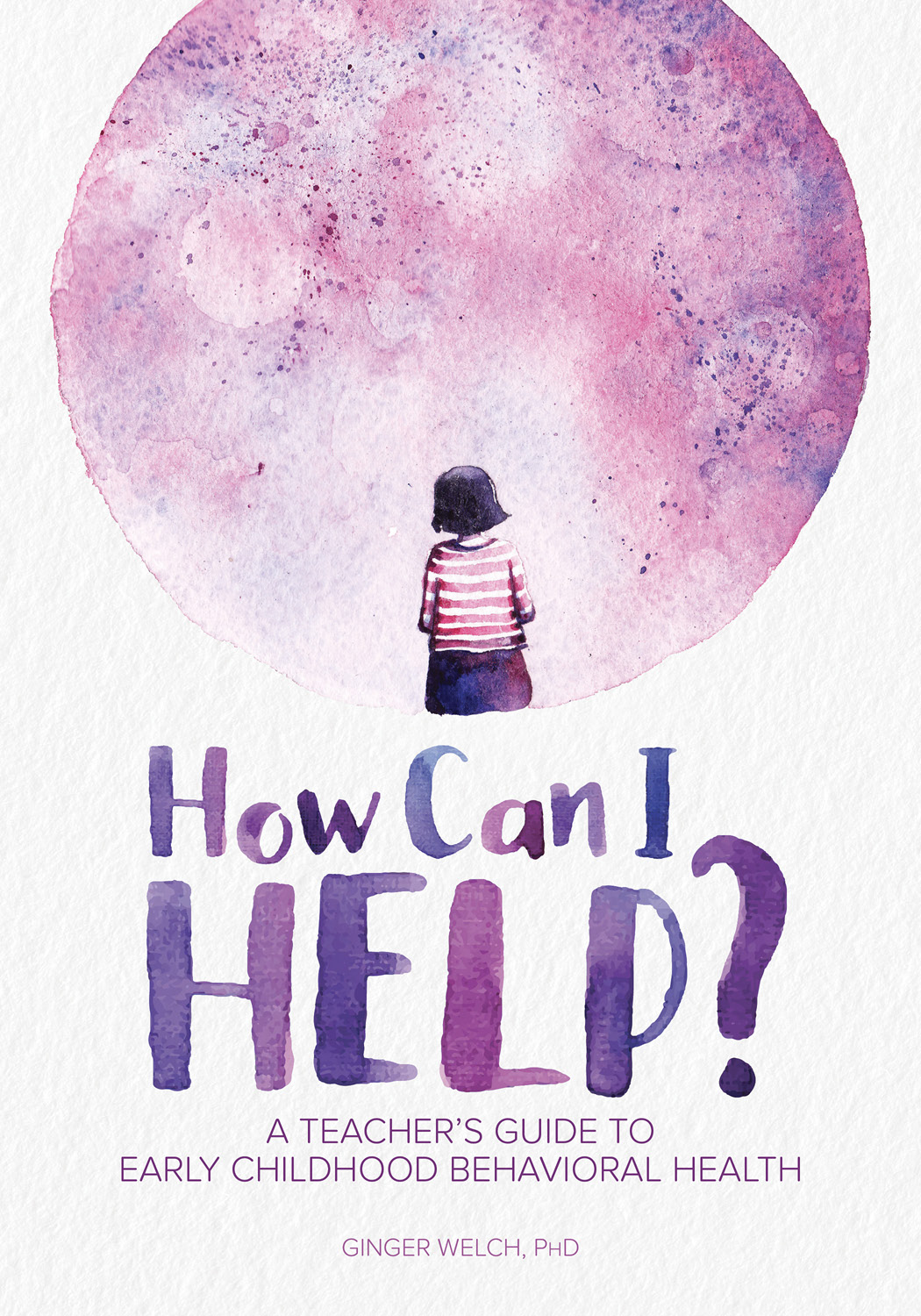Contents

Copyright
2019 Ginger Welch
Published by Gryphon House, Inc.
P. O. Box 10, Lewisville, NC 27023
800.638.0928; 877.638.7576 [fax]
Visit us on the web at www.gryphonhouse.com.
All rights reserved. No part of this publication may be reproduced or transmitted in any form or by any means, electronic or technical, including photocopy, recording, or any information storage or retrieval system, without prior written permission of the publisher. Printed in the United States. Every effort has been made to locate copyright and permission information.
Images used under license from Shutterstock.com and courtesy of the author.
Library of Congress Cataloging-in-Publication Data
The cataloging-in-publication data is registered with the Library of Congress for ISBN 978-0-87659-833-7.
Bulk Purchase
Gryphon House books are available for special premiums and sales promotions as well as for fund-raising use. Special editions or book excerpts also can be created to specifications. For details, call 800.638.0928.
Disclaimer
Gryphon House, Inc., cannot be held responsible for damage, mishap, or injury incurred during the use of or because of activities in this book. Appropriate and reasonable caution and adult supervision of children involved in activities and corresponding to the age and capability of each child involved are recommended at all times. Do not leave children unattended at any time. Observe safety and caution at all times.

Welcome
from the Author
Think back to when you made the decision to become a teacher. You likely had some idea about where you would be working, the sorts of children you would teach, and probably even some of the challenges you would face. Few teachers expect a huge financial windfall, but many of us expect emotional rewards for our sacrifices: the joy of seeing a child master a new concept, sweet thank-yous for drying tears and tending to boo-boos, and the sounds of little voices singing with you. I clearly remember building my expectations around a Norman Rockwell drawing of a teacher smiling before her class of unruly students, obviously touched by happy birthday messages scrawled on the chalkboard behind her. All misdeeds are clearly forgiven with their thoughtful gesture. Similarly, many of my fellow teachers grew up professionally with the expectation that the bad days that came with teaching would contain enough emotional reward to keep going. And truly, teachers who stay in the field must and do find these rewards.
However, many teachersparticularly new oneshave had the frustrating and puzzling experience of investing in a child and feeling that there is little to no return on that investment. Nowhere is this more apparent than in behavior management. When we treat children kindly, we do not expect a literal slap in the face. When we have modeled good social interactions, we do not expect to have strings of curse words spat at us. When we have established clear rules and created environments of consistent but warm guidance, we do not expect children to hurl chairs during group time. And when these things happen over and over again, we may begin to question ourselves, our competence, and our calling.
While quality teaching requires introspection about our abilities and our practices, many challenging behaviors in children arise because of difficulties in their lives that we cannot control. However, we can learn to understand and cope with these factors and consequently help children improve their behavior. This book provides a trauma-informed framework for working with children in the contexts in which they live, whether or not they have diagnosable disorders. This text can help you help the children who desperately need you to understand and nurture them in the busy early childhood classroom but who may not communicate those needs in a way that you can readily understand. Your classroom will always need the fundamentals of genuine care, respect, reliability, understanding, and compassion, and I hope you find useful ideas here for expanding those skills.

Chapter 1:
Three Lenses for Understanding Childrens Mental Health
When we reflect on childrens overall well-being, the popular term mental health can actually be a little misleading. We often think of skills such as coping, regulating emotions, paying attention, and relating to others as being solely part of mental health, but this perspective artificially restricts the connections between mind and body. In reality, mental and physical health are intertwined. An infant requires nurturing touch to grow. Cognitive techniques can assist patients in managing physical pain. Toxic stressor severe, chronic stress without the benefit of a nurturing attachment figurecan lead to physical problems in the body. What we perceive as the separate domains of mental health and physical health are really one interrelated system of well-being, and developing a healthy child means paying attention to the whole child. To truly understand a child as a whole, it can be valuable for adults to conceptualize that child through three lenses: the biological, the environmental, and the relational.
The Biological Lens
The biological lens focuses on the physical and genetic attributes of the child and invites us to look at elements such as these:
- Existing medical diagnoses
- Allergies
- Prenatal or birth history, such as prenatal drug or alcohol exposure or premature delivery
- Past problems with growth, such as failure to thrive
- Significant injuries
- Family medical history
- Any history of medical procedures or hospitalizations
Some of these factors, such as allergies, affect a caregivers ability to keep a young child safe, so this information is usually collected at the time a child enrolls in a program. By remembering that mental and physical health are intertwined, however, we can see the need for even greater depth of information. For example, consider the following scenarios:
- Jackie has difficulty paying attention during teacher-led activities.
- Marco frequently argues with his peers.
- Seo-yun struggles to manage her emotions.
- Zion shows significant and unusual distress at drop-off time.
Adults often attribute problematic behaviors such as these to willful acting out that needs correction. Sometimes that is indeed the case. When we look beyond a behavior itself, however, we can often find biological factors that play significant roles in the situation. To continue the examples from before, consider this additional information:
- Jackie was born eight weeks preterm.
- Marco struggles with obesity.
- Seo-yun suffered a brain injury in a car accident when she was fourteen months old.
- Zion has a life-threatening peanut allergy.
As these examples show, the biological lens enables us to understand the potential contributions of a childs medical and physical status to her overall well-being. A child cannot control biological factors, but they affect her brain and body and therefore her behavior. This information, in turn, helps us better select our intervention strategies for challenging behaviors.



